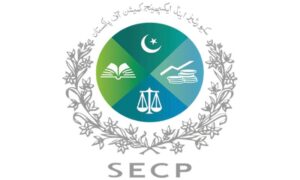Conducting an audit in Pakistan requires a systematic and comprehensive approach to ensure compliance with the applicable auditing standards and regulations. An audit is an independent examination of the financial statements of an entity, conducted by a qualified auditor, to express an opinion on the fairness and reliability of the financial information presented. In this article, we will outline the general steps and key considerations for conducting an audit in Pakistan.
- Planning Phase: The planning phase is a crucial step in the audit process as it lays the foundation for the entire audit engagement. During this phase, the auditor should:
- Understand the entity and its environment: This includes gaining an understanding of the entity’s operations, internal control systems, accounting policies, and industry-specific factors that may impact the financial statements.
- Assess risks: The auditor should identify and assess the risks of material misstatement in the financial statements, including fraud risks, and develop an audit plan to address those risks effectively.
- Determine the audit approach: Based on the assessed risks, the auditor should determine the nature, timing, and extent of audit procedures to be performed, and consider the resources required for the audit engagement.
- Testing Phase: The testing phase involves performing audit procedures to gather sufficient and appropriate audit evidence to support the audit opinion. The auditor should:
- Perform substantive procedures: Substantive procedures are designed to detect material misstatements in the financial statements. These procedures may include testing of transactions, account balances, and disclosures, and may involve analytical procedures, substantive analytical procedures, and detailed testing.
- Test internal controls: If the entity has effective internal controls, the auditor may perform tests of controls to assess the design and operating effectiveness of the internal control systems. This may involve testing the entity’s controls over financial reporting, as well as operational controls that are relevant to the audit.
- Obtain audit evidence: The auditor should obtain sufficient and appropriate audit evidence through various audit procedures, including inspection, observation, inquiry, and confirmation. The audit evidence should be documented and evaluated to support the audit opinion.
- Reporting Phase: The reporting phase involves the auditor’s communication of the audit findings and opinion on the financial statements. The auditor should:
- Formulate the audit opinion: Based on the audit evidence obtained, the auditor should form an opinion on whether the financial statements are presented fairly in all material respects, in accordance with the applicable financial reporting framework. The auditor may issue an unmodified, modified, or adverse opinion, depending on the nature and extent of the identified misstatements.
- Prepare the audit report: The auditor should prepare an audit report that includes the auditor’s opinion, a description of the scope of the audit, and other required disclosures. The audit report should be addressed to the appropriate parties, in accordance with the auditing standards and regulations in Pakistan.
- Documentation: Throughout the audit engagement, the auditor should maintain proper documentation of the audit procedures performed, the audit evidence obtained, and the conclusions reached. The documentation should be sufficient and appropriate to provide a clear understanding of the audit work performed and to support the audit opinion. The auditor should also retain the audit documentation for the required period, as per the regulatory requirements in Pakistan.
In addition to the general steps outlined above, there are some key considerations that auditors need to keep in mind while conducting audits in Pakistan:
- Compliance with Auditing Standards: Auditors in Pakistan are required to comply with the International Standards on Auditing (ISAs), which are issued by the International Auditing and Assurance Standards Board (IAASB), as well as the Pakistan Standards on Auditing (PSAs) issued by the Institute of Chartered Accountants of Pakistan (ICAP). These standards provide guidance on the responsibilities, procedures, and reporting requirements of auditors, and must be followed to ensure the quality and integrity of the audit process.
- Legal and Regulatory Requirements: Auditors in Pakistan are also required to comply with the legal and regulatory requirements applicable to the entity being audited. This includes compliance with the Companies Act, 2017, the Income Tax Ordinance, 2001, and other relevant laws and regulations. The auditor should ensure that the financial statements are prepared in accordance with the applicable financial reporting framework and that any non-compliance or material departures are appropriately disclosed in the audit report.
- Understanding the Local Business Environment: Auditors should have a good understanding of the local business environment in Pakistan, including the industry-specific factors that may impact the financial statements. This includes understanding the economic, political, and social factors that may affect the entity’s operations, financial performance, and risks. It also involves considering any specific challenges or unique characteristics of doing business in Pakistan, such as cultural practices, language barriers, and regulatory nuances.
- Professional Skepticism: Auditors need to exercise professional skepticism throughout the audit process. Professional skepticism involves having a questioning mindset and being alert to the possibility of fraud, error, or other irregularities in the financial statements. Auditors should critically assess the audit evidence obtained, corroborate information from different sources, and thoroughly evaluate the internal controls and management representations to ensure the accuracy and reliability of the financial information.
- Communication with Management and those Charged with Governance: Auditors should maintain open and effective communication with the management of the entity being audited, as well as those charged with governance, such as the board of directors or audit committee. This includes discussing the scope and timing of the audit, obtaining relevant information, and addressing any audit findings or concerns. Effective communication helps to ensure that the auditor has a clear understanding of the entity’s operations and financial reporting, and facilitates the resolution of any audit issues or queries in a timely manner.
- Professional Judgment: Auditors often need to exercise professional judgment in various areas of the audit process, including assessing the materiality of misstatements, evaluating the effectiveness of internal controls, and forming an opinion on the financial statements. Professional judgment involves applying the relevant auditing standards, laws, and regulations, as well as considering the specific circumstances and facts of the audit engagement. It is important for auditors to document their professional judgment and the basis for their conclusions to support their audit findings and opinions.
- Continuing Professional Education: Auditors in Pakistan are required to maintain their professional competence and skills through ongoing continuing professional education (CPE). This includes staying updated with the latest auditing standards, laws, and regulations, as well as enhancing their knowledge and skills in areas relevant to the audit engagement. Auditors should participate in relevant training programs, seminars, and conferences to ensure that they are equipped with the necessary knowledge and skills to conduct audits effectively and in compliance with the applicable standards.
In conclusion, conducting an audit in Pakistan requires a systematic and comprehensive approach, taking into consideration the auditing standards, legal and regulatory requirements, local business environment, professional skepticism, communication, professional judgment, and continuing professional education. Auditors should plan the audit carefully, perform substantive procedures and tests of controls, gather sufficient and appropriate audit evidence, document their work thoroughly, and communicate their findings and opinions clearly in the audit report. By adhering to these principles and considerations, auditors can ensure the integrity and reliability of the financial information presented in the financial statements of the entity being audited, which contributes to the transparency and accountability of the business environment in Pakistan.




